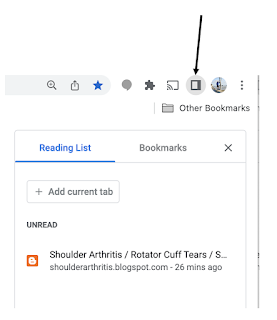Infections were identified after arthroplasty, fracture fixation, arthroscopic surgery and other open procedures.
Of note in the table below:
(1) Cutibacterium infections were identified at a mean of over 8 months following the index procedure
(2) Patients with Cutibacterium infections did not have more comorbidities (diabetes, obesity, immunosuppression, smoking) that patients infected with other bacteria.

The median time between index surgery and the first positive culture was five months and the mean was 23 months, (min 6 days – max 27 years).
Cutibacterium was identified in 64 patients (68%). Notably, C. acnes was not the only species of Cutibacterium identified in these cases of post-surgical infection.

The other two most common germs were Staphylococcus epidermidis (29%) and Staphylococcus aureus (17%). Polymicrobial infection was present in 30% of patients.
Cutibacterium was twice as frequent in males (74%) in comparison to females (29%).
S. epidermidis was more prevalent in women (46 %) compared to men (21%)
Cutibaterium was isolated in 70% of post arthroscopic infections.
S. epidermidis was three times more prevalent in chronic than in acute cases.

Comment: While this study did not provide data on the indications for revision surgery or the sampling and culturing protocols, it reinforces the fact that male patients are at greater risk for Cutibacterium infection after arthroplasty, arthroscopy, fracture fixation, and other surgical procedures. The reason for this association is addressed in a recent publication Association Between Serum Testosterone Levels and Cutibacterium Skin Load in Patients Undergoing Elective Shoulder Arthroplasty
In 51 patients undergoing elective shoulder joint replacement, total serum testosterone, free testosterone, and sex hormone binding globulin levels were obtained in the clinic before the surgical procedure and compared with the levels of Cutibacterium on the skin in clinic, on the skin in the operating room prior to the surgical procedure, and on the dermal wound edge of the incised skin during the surgical procedure.
Clinic skin Cutibacterium loads were strongly associated with both clinic free testosterone levels

and total serum testosterone levels.

The prepreparation skin and wound Cutibacterium levels at the time of the surgical procedure were also significantly associated with both the clinic total serum testosterone levels and the clinic free testosterone levels.

Patients admitting to taking supplemental testosterone had higher free and total testosterone levels.

A multivariate analysis demonstrated that serum testosterone was an independent predictor of high skin Cutibacterium loads, even when age and sex were taken into account. Patients taking supplemental testosterone had higher free testosterone levels and tended to have higher skin Cutibacterium loads.

Preoperative serum testosterone levels and cultures of the unprepared skin appear to be promising prognostic indicators of skin Cutibacterium levels and possibly of the risk of Cutibacterium infection. These tests may help indicate which patients deserve extraordinary prophylactic measures, such as Betadine lavage, topical antibiotics, and postoperative antibiotics.
While testosterone is often referred to as the "male" sex hormone, it is also present endogenously in women: see Blood androgen levels and breast cancer risk.
Exogenous testosterone is prescribed for women to increase bone density, increase energy levels, enhance cognitive performance, and enhance sexual response,: see Should we be prescribing testosterone to perimenopausal and menopausal women? A guide to prescribing testosterone for women in primary care and Testosterone therapy in women: Does it boost sex drive?
Exogenous testosterone is also used to enhance athletic performance:see Testosterone boosts women's athletic performance and Effects of moderately increased testosterone concentration on physical performance in young women: a double blind, randomised, placebo controlled study
It is used to enhance muscle mass in female and male body builders: The incidence of anabolic steroid use among competitive bodybuilders
And finally, exogenous testosterone is used in gender confirmation: see Masculinizing hormone therapy
Further clinical research will be needed to determine the utility of preopertative serum testosterone and cultures of the unprepared skin in determining the risk of Cutibacterium infections in men and women having shoulder surgery.
You can support cutting edge shoulder research that is leading to better care for patients with shoulder problems, click on this link.
To add this blog to your reading list in Google Chrome, click on the reading list icon

Follow on twitter: https://twitter.com/shoulderarth
Follow on facebook: click on this link
Follow on facebook: https://www.facebook.com/frederick.matsen
Follow on LinkedIn: https://www.linkedin.com/in/rick-matsen-88b1a8133/
Here are some videos that are of shoulder interest
Shoulder arthritis - what you need to know (see this link).
How to x-ray the shoulder (see this link).
The ream and run procedure (see this link).
The total shoulder arthroplasty (see this link).
The cuff tear arthropathy arthroplasty (see this link).
The reverse total shoulder arthroplasty (see this link).
The smooth and move procedure for irreparable rotator cuff tears (see this link).
Shoulder rehabilitation exercises (see this link).
